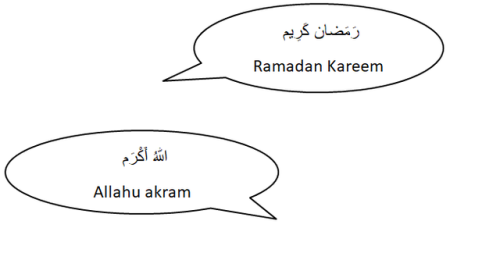Table of Contents Show
The Arabic phrase “Allahu Akram” translates to “God is the Most Generous” in English. This expression is often used in Islamic contexts to emphasize the boundless generosity and mercy of God (Allah). In Islamic teachings, God’s generosity is a fundamental attribute, signifying that He is not only the creator of the universe but also the provider of sustenance, guidance, and forgiveness to all of His creations.
Understanding the Context of “Allahu Akram”
The phrase “Allahu Akram” can be found in various Islamic texts and is often invoked in prayers or during discussions about divine attributes. It reflects a deep-seated belief in the benevolence of God and serves as a reminder for believers to practice generosity and kindness in their own lives. The concept of generosity in Islam extends beyond mere financial support; it encompasses acts of kindness, compassion, and selflessness towards others.
The Importance of Generosity in Islam
In Islamic teachings, generosity is not just a commendable trait but a moral obligation. The Quran and Hadiths (sayings of the Prophet Muhammad) frequently highlight the significance of being charitable and helping those in need. Believers are encouraged to give to the less fortunate, support community initiatives, and engage in acts of kindness. The notion of “Allahu Akram” reinforces the idea that as God is generous, His followers should strive to emulate this quality in their daily lives.
Practical Implications of Being Generous
Emulating God’s generosity can manifest in various forms, including:
Zakat (Obligatory Charity): One of the Five Pillars of Islam, this is a mandatory form of almsgiving, where Muslims are required to give a portion of their wealth to those in need.
Sadaqah (Voluntary Charity): Beyond the obligatory Zakat, Sadaqah represents voluntary acts of charity, which can be given at any time and in any amount. This can include monetary donations, but also extends to offering time, skills, or resources to help others.
Acts of Kindness: Simple acts of kindness, such as offering a smile, helping a neighbor, or showing compassion to animals, are also seen as expressions of generosity.
Community Service: Engaging in community service or humanitarian efforts is another way to embody the spirit of “Allahu Akram,” contributing to the well-being of society as a whole.
Conclusion
In essence, “Allahu Akram” serves as a powerful reminder of the importance of generosity within the Islamic faith. It encourages believers to not only acknowledge God’s infinite kindness but also to reflect that kindness in their own actions. By embracing this attribute, individuals can foster a more compassionate and supportive community, ultimately fulfilling their spiritual and moral responsibilities. The call to be generous is timeless and universal, promoting a sense of solidarity and care among all people.










